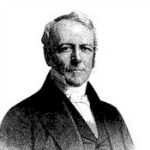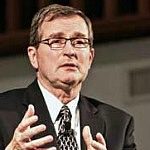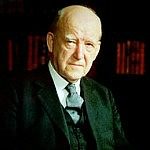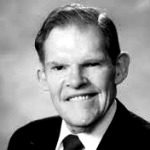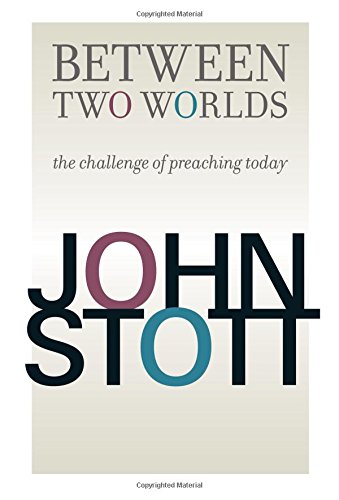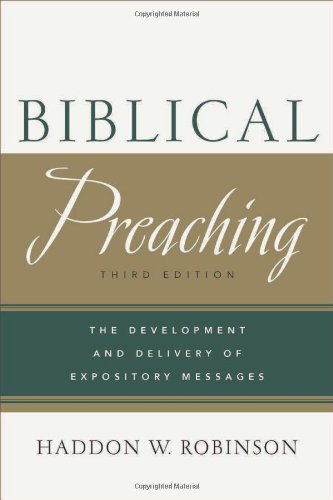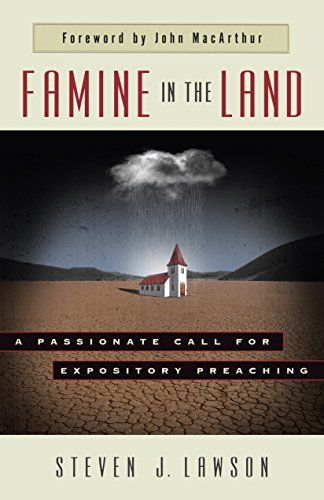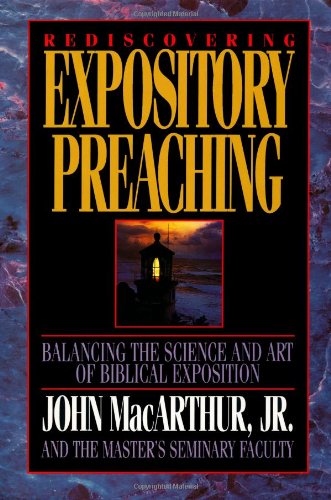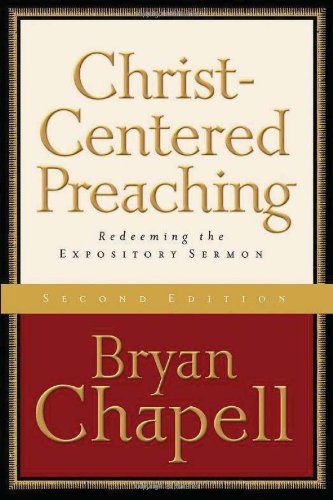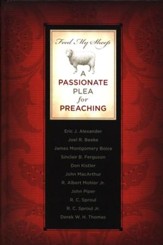Quotes about Preaching-Expository
Expository Preaching:
1. Emulates biblical preaching both in content and style.
2. Best achieves the biblical intent of preaching: delivering God’s message.
3. Promotes scripturally authoritative preaching.
4. Magnifies God’s Word.
5. Provides a storehouse of preaching material.
6. Develops the pastor as a man of God’s Word.
7. Ensures the highest level of biblical knowledge for the flock
8. Leads to thinking and living biblically.
9. Encourages both depth and comprehensiveness.
10. Forces treatment of hard-to-interpret texts.
11. Allows for handling broad theological themes.
12. Keeps preachers away from ruts and hobbyhorses.
13. Prevents the insertion of human ideas.
14. Guards against misinterpretation of the biblical text.
15. Imitates the preaching of Christ and the apostles.
16. Brings out the best in the expositor.
Exposition alone is not preaching. A minister who only presents the grammatical and historical meaning of God’s Word may be lecturing or discoursing, but he isn’t preaching. The Word must also be applied. This application is an essential characteristic of Reformed preaching. Without it, vitality is quenched.
We are on the wrong track if we think expository preaching merely as a preaching style chosen from a list (topical, devotional, evangelistic, textual, apologetic, prophetic, expository)… As John Stott says, “All true Christian preaching is expository preaching.”
Preaching for God’s Glory, Crossway, 1999, p. 28. Get this book!
Since expository preaching begins with the text of Scripture, it starts with God and is in itself an act of worship, for it is a declaration of the mighty acts of God. It establishes the focus of the people upon God and His glory before any consideration of man and his need.
Preaching for God’s Glory, Crossway, 1999, p. 33. Get this book!
One of the reasons for the disinterest in expository preaching is surely that so many attempts at it prove lifeless, dull, and even thoroughly boring. I never cease to be amazed by the ingenuity of those who are capable of taking the powerful, life-changing text of Scripture and communicating it with all the passion of someone reading aloud from the Yellow Pages!
Preaching for God’s Glory, Crossway, 1999, p. 22. Get this book!
An expository sermon as that which requires that it expound Scripture by deriving from a specific text main points and subpoints that disclose the thought of the author, cover the scope of the passage, and are applied to the lives of the listeners.
Christ-Centered Preaching, Baker Books, 1994, p. 129. Get this book!
The first mark of a healthy church is expositional preaching. It is not only the first mark; it is far and away the most important of them all, because if you get this one right, all of the others should follow… If you get the priority of the Word established, then you have in place the single most important aspect of the church’s life, and growing health is virtually assured, because God has decided to act by His Spirit through His Word… The congregation’s commitment to the centrality of the Word coming from the front, from the preacher, the one specially gifted by God and called to that ministry, is the most important thing you can look for in a church.
Nine Marks of a Healthy Church, Crossway, 2000, p. 25, 38. Get this book!
A church in which there is expositional preaching will be a church that is encouraging Christian growth – as we listen to God speaking from His Word into our lives. God’s Word is what we need if we are to grow. But we won’t learn that basic fact by looking to the culture around us to tell us what we most need. We can’t even look into our own hearts for such knowledge.
Nine Marks of a Healthy Church, Crossway, 2000, p. 191. Get this book!
Expositional preaching is not simply producing a verbal commentary on some passage of Scripture. Rather, expositional preaching is that preaching which takes for the point of a sermon the point of a particular passage of Scripture. That’s it. The preacher opens the Word and unfolds it for the people of God.
An expositional sermon is a sermon in which the point of a biblical text is the point of the sermon, applied to the life of the congregation.
Expository preaching is the faithful explanation and application of the Bible in which the text of Scripture supplies the matter of the preacher’s exhortations rather than the preacher using the text as an occasion for his own expostulations, however helpful they may be.
The explanation of Scripture forms the dominant feature and the organizing principle of the message. All preaching should be based on the apostolic kerygma and didache. Exegetical preaching is governed by the goal of expounding the meaning and significance of this “faith once-delivered” in terms of the actual way in which it has been delivered, namely the structure and content of the biblical revelation, in which truth is revealed not in the form of a series of theological or topical loci (God, sin, justification, sanctification; war, money, social ethics, etc.), but through history, parable, narrative, argumentation, poem, and so on. Exegetical preaching therefore sees as its fundamental task the explanation of the text in its context, the unfolding of its principles, and only then their application to the world of hearers.
The Preacher and Preaching: Reviving the Art in the Twentieth Century, ed. Samuel T. Logan, P&R, 1986, p.192-193.
Expository preaching has three decided advantages for any pastor: First, it takes the congregation through a book of the Bible so that they are able to observe and understand the various covenantal themes contained in it. Second, this type of “series” preaching protects the congregation from the pastor’s “hobby horses.” Therefore, rather than preaching on a number of his favorite topics, he is bound by the text to preach and teach the variety of doctrines found in the Word of God. Moreover, in the history of preaching it has been this expository approach that has proven to be the most spiritually beneficial to God’s covenant communities. Third, this will solve the problem for the younger pastor of choosing a text every week. Being guided by the text and your exegesis, you know what you’re preaching on next week.
The great, God-blessed churches in the world today have one common characteristic: an insistence upon an exposition of God’s infallible Word.
Expositional preaching is empowered preaching that rightfully submits the shape and emphasis of the sermon to the shape and emphasis of a biblical text. In that way it brings out of the text what the Holy Spirit put there…and does not put into the text what the preacher thinks might be there.
Expositional Preaching, ©9Marks. Website: www.9Marks.org. Email: info@9marks.org.Toll Free: (888) 543-1030. Used by Permission. p. 13.
While it is true that people are converted and matured through expositional preaching, the word of the gospel must be wedded to the Spirit’s work in order for conviction of sin, regeneration, repentance and faith, and lifelong perseverance to come. Or to put it differently, “Neither he who plants nor he who waters is anything, but only God who gives the growth” (1 Cor. 3:7)
Expositional Preaching, ©9Marks. Website: www.9Marks.org. Email: info@9marks.org.Toll Free: (888) 543-1030. Used by Permission. p. 34.
Biblical exposition does the heavy lifting of building up a church.
Expositional Preaching, ©9Marks. Website: www.9Marks.org. Email: info@9marks.org.Toll Free: (888) 543-1030. Used by Permission. p. 12.
Consequently, unless the Scriptures constitute the basis for all the structural elements of a sermon and unless the expositor labors diligently in the context of each of the texts he cites, a sermon will inevitably lack the power of the Word of Truth rightly divided, and hearers will be misled, both in the substance of what is taught and in the example of Bible study methodology. The preacher must lead his people into the text, not away from it.
The preacher must lead his people into the text, not away from it.
The minimal elements of expository preaching guarantees the message is:
1. Originated in Scripture.
2. Extracted from Scripture through careful exegesis.
3. Prepared whereas it correctly interprets Scripture in its normal sense and context.
4. Clearly explains the original God-intended meaning of Scripture.
5. Applying the Scriptural meaning for today.
One thing is definitive for an expositional sermon: It lays out the meaning and purpose of a biblical text clearly. It says, “Here is the point of this text, and it’s relevant to you, no matter who you are, where you are from, or what’s happening in your life right now.” The preacher concentrates all his powers on reproducing the burden of the Bible in the hearts and minds of the people, and he avoids letting anything in his person get in the way of that goal. He’d rather risk boring or offending his congregation than depriving them of the opportunity to hear what God says… He knows that he gives his hearers a chance at true life only insofar as he succeeds in faithfully reproducing what God has already said.
Presenting expository sermons book by book:
1. Allows God and God’s wisdom to set the agenda, not the preacher’s wisdom.
2. Prevents preachers from indulging their hobbyhorses.
3. Allows the preacher to learn along with the congregation, rather than limiting the congregation to what the preacher already knows.
4. Requires a preacher and a congregation to learn about God as God has revealed Himself, not as they want Him to be revealed.
5. Requires a preacher to preach the easy bits and the difficult bits of the Bible.
The big difference…between a lecture and a sermon is that a sermon does not start with a subject; a sermon should always be expository. In a sermon the theme or the doctrine is something that arises out of the text and its context, it is something which is illustrated by that text and context.
Preachers and Preaching, Zondervan, 1971, pg. 71, Used by Permission. Get this book!
It means to preach the Bible in such a way, that the meaning of the Bible passage is presented entirely and exactly as it was intended by God. That’s the challenge – the divine Word coming through the preacher.
Inerrancy demands an exegetical process and an expository proclamation. Only the exegetical process preserves God’s Word entirely and exactly as He intended it to be proclaimed. Expository preaching is the result of the exegetical process. Thus, it is the essential link between inerrancy and proclamation. It is mandated to preserve the purity of God’s originally given inerrant Word and to proclaim the whole counsel of God’s redemptive truth.
Preaching the Book God Wrote, Part 5, The article originally appeared (http://www.gty.org/Resources/Print/Articles/A230) at www.gty.org. © 1969-2008. Grace to You. All rights reserved. Used by Permission.
1. Expositional preaching best achieves the biblical intent of preaching: delivering God’s message.
2. Expositional preaching promotes scripturally authoritative preaching.
3. Expositional preaching magnifies God’s Word.
4. Expositional preaching provides a storehouse of preaching material.
5. Expositional preaching develops the pastor as a man of God’s Word.
6. Expositional preaching ensures the highest level of Bible knowledge for the flock.
7. Expositional preaching encourages both depth and comprehensiveness.
8. Expositional preaching forces the treatment of hard-to-interpret texts.
9. Expositional preaching leads to thinking and living biblically.
10. Expositional preaching allows for handling broad theological terms.
11. Expositional preaching keeps preachers away from ruts and hobby horses.
12. Expositional preaching prevents the insertion of human ideas.
13. Expositional preaching guards against the misinterpretation of biblical texts.
14. Expositional preaching imitates the preaching of Christ and the apostles.
15. Expositional preaching brings out the best in the expositor.
The sermon is the text repeated more fully.
[Benefits of] expounding the Scriptures:
1. [It] encourages the congregation to bring their Bibles to church, and everything that leads believers to value the Scriptures is important.
2. Exposition may open the Scriptures to them and create in them a desire to meditate for themselves. When they again read over the portion of the Word which has been expounded, they will remember what has been said. Thus, it leaves a more lasting impression on their minds.
3. Expounding large portions of the Word, such as an entire gospel or epistle, leads the teacher to consider portions of the Word which he might otherwise overlook. This keeps him from speaking too much on favorite subjects and leaning too much to particular parts of truth – a tendency which will surely sooner or later injure both himself and his hearers.
Excerpted from: The Autobiography of George Muller, 1984, p.33-34. All quotations taken from books published by Whitaker House are used with permission of the publisher. Whitaker House books are available at Christian bookstores everywhere. Get this book!
By expository preaching, I mean that method of pulpit discourse which consists in the consecutive interpretation, and practical enforcement, of a book of sacred canon (William Taylor).
Exposition is preaching that derives its content from the Scripture directly, seeking to discover its divinely intended meaning, to observe its effect upon those who first received it, and to apply it to those who seek its guidance in the present. It consists of deep insight into and understanding of the thoughts of God, powerfully presented in direct personal application to contemporary needs and problems. It is definitely not a dreary, rambling, shallow verse-by verse commentary, as many imagine. Nor is it a dry-as-dust presentation of academic biblical truth, but a vigorous, captivating analysis of reality, flowing from the mind of Christ by means of the Spirit and the preacher into the daily lives and circumstances of twentieth century people (Ray C. Stedman).
On Expository Preaching, www.RayStedman.org, Used by permission.
[The preacher’s] aim, rather, will be to stand under Scripture, not over it, and to allow it, so to speak, to talk through him, delivering what is not so much his message as its. In our preaching, that is what should always be happening. In his obituary of the great German conductor, Otto Klemperer, Neville Cardus spoke of the way in which Klemperer “set the music in motion,” maintaining throughout a deliberately anonymous, self-effacing style in order that the musical notes might articulate themselves in their own integrity through him. So it must be in preaching; Scripture itself must do all the talking, and the preacher’s task is simply to “set the Bible in motion.”
Preaching a Biblical Interpretation in Inerrancy and Common Sense, edited by Roger Nicole and J. Ramsey Michaels, Baker, 1980, p. 203.
[The preacher’s] aim…will be to stand under Scripture, not over it, and to allow it, so to speak, to talk through him, delivering what is not so much his message as its. In our preaching, that is what should always be happening. In his obituary of the great German conductor, Otto Klemperer, Neville Cardus spoke of the way in which Klemperer “set the music in motion,” maintaining throughout a deliberately anonymous, self-effacing style in order that the musical notes might articulate themselves in their own integrity through him. So it must be in preaching; Scripture itself must do all the talking, and the preacher’s task is simply to “set the Bible in motion.”
Preaching as Biblical Interpretation, in Inerrancy and Common Sense, ed. Roger R. Nicole and J. Ramsey Michaels, Baker, 1980, p. 203.
The aim of this exposition is to help you eat and digest biblical truth that will make your spiritual bones more like steel,
double the capacity of your spiritual lungs,make the eyes of your heart dazzled with the brightness of the glory of God and awaken the capacity of your soul for kinds of spiritual enjoyment you didn’t even know existed.
What I Mean by Preaching, Copyright 2009, John Piper, Used by Permission. www.DesiringGod.org.
Expository means that preaching aims to exposit, or explain and apply, the meaning of the Bible. The reason for this is that the Bible is God’s word, inspired, infallible, profitable—all 66 books of it. The preacher’s job is to minimize his own opinions and deliver the truth of God. Every sermon should explain the Bible and then apply it to people’s lives. The preacher should do that in a way that enables you to see that the points he is making actually come from the Bible. If you can’t see that they come from the Bible, your faith will end up resting on a man and not on God’s word.
What I Mean by Preaching, Copyright 2009, John Piper, Used by Permission. www.DesiringGod.org.
Accuracy, not to speak of integrity, demands that we develop every possible skill to keep us from declaring in the name of God what the Holy Spirit never intended to convey.
Expository preaching is the communication of a biblical concept, derived from and transmitted through a historical, grammatical, and literary study of a passage in its context, which the Holy Spirit first applies to the personality and experience of the preacher, then through the preacher, applies to the hearers.
Biblical Preaching: The Development and Delivery of Expository Messages 2nd ed., Baker Books, 1980, p. 21.
It is blessed to eat into the very soul of the Bible until at last you come to talk in scriptural language and your spirit is flavored with the words of the Lord.
Five reasons why I believe expository preaching is superior to all other styles:
1. Expository preaching models and teaches the congregation how to read and study the Bible for themselves. Most Christians will mimic (in a good sense) the model they see and hear week in and week out in the pulpit. The way they see and hear their pastor approach and handle and proclaim the Scriptures will become, often unconsciously, the way they do so in their own study and devotional life.
2. Expository preaching is the most effective way to teach the content of the Bible. Exposition unpacks for people both the broad sweep of God?s activity in redemptive history and the particular principles and truths of theology so essential for growth in Christ.
3. Expository preaching is the most effective way for the preacher to learn the content of the Bible. The sort of preparatory study essential to preach expositionally enhances the preacher?s growth in the knowledge of the Word in a way that other forms of preaching do not. When one is compelled to preach systematically through a book of the Bible, the preacher finds that he must address a greater number of issues and problems than would otherwise readily spring to mind.
4. Expository preaching is a check against hobby-horse preaching. That is to say, preaching verse-by-verse through a book of the Bible guards the preacher from obsessive preoccupation with his own cherished themes, which are all too often remote from either the interests or needs of the congregation.
5. Expository preaching insures that the people of God will be fed a full, well-balanced diet of the Word of God. The Scriptures are such that consistent exposition will yield teaching on the full range of theological issues, ethics (both individual and corporate), family obligations, social responsibility, etc.
An Appeal to All Preachers: Why and How We Should Preach – Part III, November 8, 2006, www.enjoyinggodministries.com. Used by Permission.
Expository preaching is rooted in the accurate explanation of Scripture and seeks to expose, or open up, some portion of the Bible.
Practical Wisdom for Pastors, Crossway Books, 2001, p. 240. Get this book!
Only in the context of a firm belief in Scripture’s inerrancy has expository preaching thrived.
The distinctive characteristic of expository preaching is its instructional function. An explanation of the details of a given text imparts information that is otherwise unavailable to the average untrained parishioner and provides him with a foundation for Christian growth and service. The importance and centrality of thorough exegesis in preparing the expositor for this service cannot be overstated. Exegesis must itself be on a solid footing and must lead to development in supplementary fields that, in turn, provide important data for expository preaching, too. With the raw material of sermon preparation thus obtained, common-sense principles must be applied in putting the material into a form that the congregation can receive with ease and learn from.
The Relationship Between Exegesis and Expository Preaching, TMS Journal, www.tms.edu/JournalIssue.aspx?year=1991.
No matter what the length of the portion explained may be, if it is handled in such a way that its real and essential meaning as it existed in the mind of the biblical writer and as it exists in the light of the overall context of Scripture is made plain and applied to the present-day needs of the hearers, it may be properly said to be expository preaching. It is emphatically not preaching about the Bible, but preaching the Bible. “What saith the Lord” is the alpha and omega of expository preaching. It begins in the Bible and ends in the Bible and all that intervenes springs from the Bible. In other words, expository preaching is Bible-centered preaching.
